Barbara Kyle's Blog: The Rest of the Story, page 3
March 7, 2014
The Three-Armed Woman: Book Covers to Love
 We'll get to the three-armed woman in a minute.
We'll get to the three-armed woman in a minute.First, I'm happy to tell my readers in the UK that The Queen's Gamble (left) is now available in the UK.
The Queen's Gamble was released in the US and Canada first in 2011 with a different cover (below).
It was an Editor's Choice of the Historical Novels Review: http://historicalnovelsociety.org/rev...
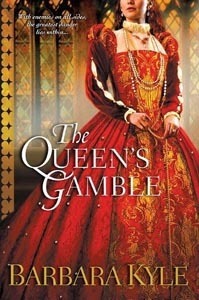
The two covers - UK edition (green) and US edition (orange) - are very different. Publishers use cover art that they feel will appeal to readers in their respective countries.
For example, look at how differently three of my publishers saw The King's Daughter. The top one is the US/Canada cover, the middle one is the UK cover, the bottom one is the Portuguese cover:
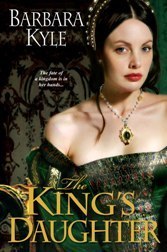
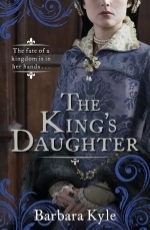

So where, you ask, is the "three-armed woman" of the title of this blog post? Well, she's on the famous cover of a book by bestselling romance author Christina Dodd - famous because it was a big oops!
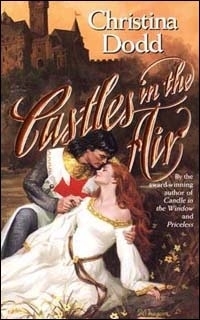
Can you spot the lady's three arms? 1) She's leaning on her left hand, 2) The knight is holding her right hand, 3) Bingo: #3 is beside her right knee!
The author, Christina Dodd, wrote a hilarious article about her adventure with this cover blooper. To read it click here: http://christinadodd.com/christina-do...
There are some stunningly awful covers for various editions of the classic Jane Eyre. Here's one:
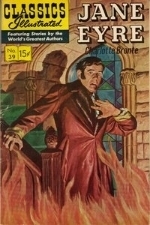
For a smile, see more "bad Jane Eyre covers" here: http://bizarrevictoria.livejournal.co...
I'm delighted with the cover of my upcoming historical thriller The Queen's Exiles on which my heroine, Scottish-born Fenella Doorn, has the standard-issue two arms. I hope you like it!
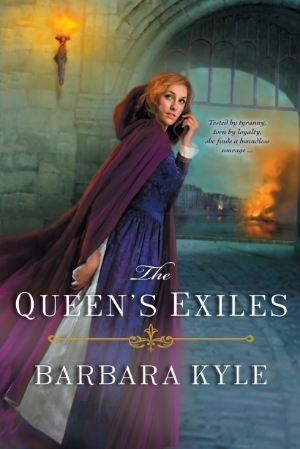
The Queen's Exiles will be released 27 May 2014. You can pre-order it now and receive it the day it's released. To pre-order from Amazon click here: http://tinyurl.com/nozlppk
Happy reading, whatever the cover!
Published on March 07, 2014 07:43
•
Tags:
elizabeth-i, historical-fiction, historical-novel, historical-thriller, the-queen-s-gamble, tudors
February 25, 2014
A Great Read: THREE SOULS by Janie Chang
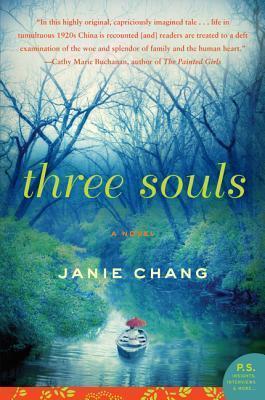
It's a real pleasure to let you know about an exciting new talent: author Janie Chang.
I "met" Janie on Twitter a couple of years ago. I love Twitter - it's like a global cocktail party. After a lively exchange there Janie invited me to be interviewed on her blog.
She had recently completed her first novel THREE SOULS, was thrilled to have signed with literary agent Jill Marr, and was anxiously hoping that THREE SOULS would find a publisher.
That was September 2012.
Fast-forward to this week, February 2014:
THREE SOULS is now on sale in the US!
I loved THREE SOULS. I know you will too. But don't take just my word for it. The industry praise for this book is stunning:
Historical Novels Review: "A remarkable, exquisite work of historical fiction ... highly recommended as a wonderful read and an experience of creative, brilliant writing." An Editor's Choice.
Booklist: “In the midst of civil war on the eve of the Chinese Revolution, Song Leiyin awakens to find herself rising above her own funeral. According to Chinese tradition, she joins her soul, trapped in the space between Earth and the afterlife. She must revisit her life to right whatever wrong is keeping her from going on to reincarnation. Leiyin is alternately joyful and pained as she remembers the moments of her youth. Growing up, she strained against the chains imposed by her traditional Chinese family, ultimately committing a misstep that ended in her father arranging an unwelcome marriage. But even this fate had its joys. Now endowed with the gift of hindsight, Leiyin grieves her errors and urgently strives to set things right for her family, her husband, and her young daughter before it’s too late. Leiyin is a sympathetic character, and her journey of self-realization is mirrored in China’s time of political upheaval as traditional culture gives way to the future. Both heartbreaking and hopeful, Janie Chang’s first novel is an immersive and enjoyable read.”
Publishers Weekly: “A moving fiction debut ... her novel bristles with freshness and heart.”
Congratulations, Janie!

Visit Janie Chang's website: http://www.janiechang.com/home
Published on February 25, 2014 05:40
February 20, 2014
Anne Boleyn and the Colonel: A Tale of Hever Castle

I welcome every message from readers, but there's one I particularly cherish. It concerns an acorn, a castle, and a gallant Colonel.
Here’s the story.
Several years ago I was in England researching The Queen’s Lady, the first book in my Thornleigh Saga series, and I spent a day exploring Hever Castle in Kent. This was the home of the Boleyn family, and Henry VIII came here to court Anne. That tempestuous affair, as we know, changed the course of England’s history—and is pivotal to my book’s plot.
As I strolled the grounds in a happy haze of imagination, I picked up an acorn. I squirreled it away in my pocket and brought it home to Canada, and it sat on my desk beside my computer, a potent reminder of its birthplace as I wrote The Queen’s Lady.
The acorn was still on my desk when I wrote my next Thornleigh Saga book, The King's Daughter. It had become a touchstone that spirited me back to the Tudor world. I was very fond of it.
Then my husband and I moved, and in the shuffle the little acorn got lost.
A few months later I got a cheery email from a reader telling me he was on his way to England for an “Anne Boleyn Tour” during which he’d be staying at Hever Castle. There would be dinners in the great hall where Henry and Anne ate, plus lectures, plays, and demonstrations – “A once in a lifetime experience,” he said. I replied to wish him a happy trip and told him about my acorn. He's a retired US Air Force colonel. His name is Elmer K. Follis and he lives in Tennessee.

Some time later a small package arrived in my mailbox. It was from Colonel Follis. Inside was a note: “I looked for an acorn to replace the one you lost but couldn’t find one. I did get you this.” Nestled under the note was a pine cone. He had scoured the Hever grounds for it. “It’s from the area where Henry courted Anne, according to the castle staff,” wrote the Colonel.
I was so touched. Since then, the pine cone has had pride of place on my desk beside my computer as I've written four more Thornleigh Saga books.
Thank you, Colonel Follis, for what you gave me: a once in a lifetime experience.

*
Visit my website: http://www.barbarakyle.com/
*****
Published on February 20, 2014 07:33
•
Tags:
anne-boleyn, henry-viii, thornleigh-saga
February 14, 2014
The Execution of Sir Thomas More
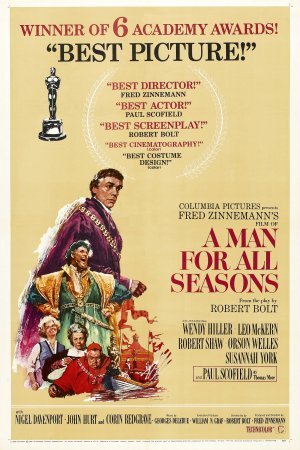
A Man For All Seasons, the 1966 film based on Robert Bolt's play and starring Paul Scofield, imprinted on a generation a glowing picture of Sir Thomas More as a warmhearted humanist: a loving family man, a brilliant lawyer and writer, and a steadfast friend of Henry VIII until the rift over Henry's break with the Roman church brought More to the execution block.
As a child of the 60s, I was drawn to More the humanist when I began to write my novel The Queen's Lady the first in what became the Thornleigh Saga series. What I discovered in my research was a complex and conflicted man. As Henry's chancellor, More banned books and burned men at the stake. He was a child of his time, of course, and his time - the Reformation - terrified him.
Deeply conservative, More loathed and feared the radicalism of the German Lutherans. He was shaken by the news of the sack of Rome, a barbarous rampage by a mixed brew of Spanish, Italian, and German mercenary troops who, unpaid after fighting for the Emperor Charles, mutinied and stormed the city. They massacred a third of the population, prodded cardinals through the streets to be butchered, auctioned off nuns who were then raped at their altars, and shredded precious manuscripts of the Vatican library to use for horses' bedding. The carnage stunned Europe.

Like complex ideologues of our own time, More, while condemning others to death, was also a caring and loving father. He wrote affectionate letters to his children whenever he was away on his business for the king, and, quite unusually for the period, he educated his daughters on an equal footing with his son.
More also had a ward, Anne Cresacre, who grew up with his children and married his son, John. The Court of Wards was one of the Tudor crown's most lucrative ministries. All orphans with significant property became wards of the king, who then sold the wardships. Gentlemen bid for these sought-after prizes since the guardian pocketed the rents and revenues of the ward's property until the young person came of age.
Anne Cresacre's story inspired me to create another ward for More in The Queen's Lady, Honor Larke, who grows up revering him and becomes a lady-in-waiting to Henry VIII's first wife, Catherine of Aragon. The story turns on Honor being forced to choose sides in the religious extremism of the day, bringing her into conflict with her once-beloved guardian.
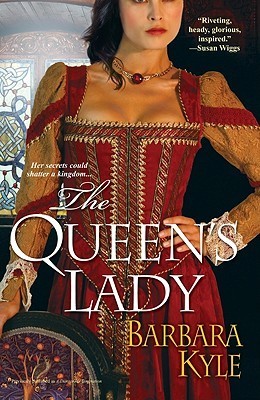
More himself was famously forced to choose, too, and a horrifying choice it was, when his friend Henry, the king, demanded that all men swear an oath acknowledging him as supreme head of the church in England. Henry's break with the Roman church was the result of his implacable drive to get the Pope to annul his marriage to Catherine so he could marry Anne Boleyn. The penalty for refusing to take the oath was death. The vast majority of Henry's subjects complied.
But Sir Thomas More believed that no king was, or could ever be, the supreme head of the church, and that if he swore the oath he would perjure his immortal soul. Along with several Carthusian monks and Bishop John Fisher, More chose death.
On the scaffold, as the executioner stood ready with his axe, More's last words were true to his complex nature: "I die the king's good servant, but God's first."
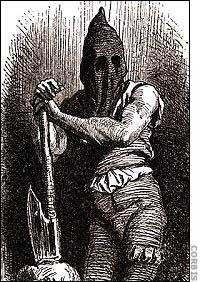
*****
 Two days left to enter the giveaway for an advance copy of my new historical thriller The Queen's Exiles. My publisher is giving away 25 ARCs here: https://www.goodreads.com/giveaway/sh...
Two days left to enter the giveaway for an advance copy of my new historical thriller The Queen's Exiles. My publisher is giving away 25 ARCs here: https://www.goodreads.com/giveaway/sh...
Published on February 14, 2014 18:05
2 Days Left to Enter the Giveaway!
Win an advance copy of my new historical thriller THE QUEEN'S EXILES.
My publisher is giving away 25 ARCs here at Goodreads. There are still 2 days left to enter.
https://www.goodreads.com/giveaway/sh...
This giveaway ends on February 17th.
I hope you win one!
My publisher is giving away 25 ARCs here at Goodreads. There are still 2 days left to enter.
https://www.goodreads.com/giveaway/sh...
This giveaway ends on February 17th.
I hope you win one!
Published on February 14, 2014 07:26
•
Tags:
elizabeth-i, giveaway, historical-fiction, historical-thriller
February 7, 2014
What Character's Death Broke Your Heart?
I recently asked this question on Facebook — What fictional character's death affected you forever? I got an amazing response. People recall with vivid clarity the characters in novels whose deaths left them feeling bereft, even years after reading the book.
The answers were wonderfully varied. Beth March in Little Women. Sydney Carton in A Tale of Two Cities. Charlotte, the spider. Ned Stark in A Game of Thrones. People cited many characters who died because of an injustice in society. Bambi's mother (sport hunting). Lenny in Of Mice and Men (mistreatment of the handicapped). Anna Karenina (society's hypocrisy). It strengthens my belief that readers hunger for stories about issues of justice, and the valor of dying well.







It's not just readers who are so deeply affected. As an author, every time I've killed a beloved character in my books, I wept. The poet Robert Frost said it eloquently: "No tears in the writer, no tears in the reader." In other words, as an author I must be shaken by a character's death myself if I am to render it faithfully to the reader.
Mind you, I've also blithely killed several hundred minor characters. I've garrotted them, burnt them at the stake, slit their throats, cut off their heads, drowned them, disemboweled them, and slaughtered them in battle. (Hey, Tudor times were savage.) My husband warns that a special purgatory awaits me where the souls of all the characters I've murdered will haunt me for eternity.
Sometimes, readers don't let authors get away with it. In 1893 Sir Arthur Conan Doyle killed Sherlock Holmes by plunging him over a mountain ledge, locked in a death-struggle with his arch-enemy Moriarty. Holmes's fans were horrified. Many took to the street wearing black armbands of mourning. Conan Doyle heeded their call. He resuscitated Holmes, who starred in later books in all his arrogant glory.
What fictional deaths broke my heart? Mariko in James Clavell's magnificent Shogun. Robbie and Cecilia in Ian McEwan's Atonement. Gus in Larry McMurtry's Lonesome Dove.



Death in fiction is potent — and important. This reply to my Facebook question came from Mary Tod, a new writer to watch (check out her moving debut novel Unravelled): "Julian Friedman gave a TED talk in which he said that stories allow us to rehearse our fears — perhaps this is one reason why the death of a compelling, empathetic character remains with us. We've rehearsed the fear and the tragedy of losing someone we love."
Three kinds of fictional characters' deaths shatter us the most:
1. The Innocent Friend
The most dangerous relationship a character can have is being the best friend of the hero. If the hero has been reluctant to accept his destiny, or his responsibilities, the death of his friend is often a turning point, galvanizing him to take the next steps and the necessary risks. By his friend's death the hero is changed, made stronger, grows up.
2. The Victim of an Evil World
When we shudder at Fantine's death in Victor Hugo's Les Miserables we shudder at the hellish poverty that killed her. In 1916 union leader Eugene V. Debs compared Fantine's sufferings to those of abandoned women in his own day. He wrote: "The brief, bitter, blasted life of Fantine epitomizes the ghastly story of the persecuted, perishing Fantines of modern society." Other such victims: Robbie and Cecelia in Atonement lose their lives pitifully in the gruesome grind of war. In A Game of Thrones, Ned Stark is executed in a naked political power grab.
3. The Self-Sacrificing Hero
When Mariko, the courageous noblewomen in Shogun, goes to Osaka Castle to obtain the release of innocent hostages, she knows she is going to her death. She sacrifices her life to save Toranaga from his enemies and restore peace. In A Tale of Two Cities, Sydney Carton takes his awe-inspiring walk to the guillotine with selfless resolve, sacrificing his life so that Lucie, the woman he loves, can be reunited with her husband.
These are deaths of valor - to me the most moving of all. These characters, fully aware, accept death as the price of saving the people they love. That's powerful stuff. What reader is not moved to ask herself in admiration: Could I do the same?
So tell me, what character's death broke your heart?
***

Giveaway! Win a copy of my new novel The Queen's Exiles. My publisher is giving away 25 advance copies. Enter for a chance to win! https://www.goodreads.com/giveaway/sh...
***
Visit my website: http://www.barbarakyle.com/
The answers were wonderfully varied. Beth March in Little Women. Sydney Carton in A Tale of Two Cities. Charlotte, the spider. Ned Stark in A Game of Thrones. People cited many characters who died because of an injustice in society. Bambi's mother (sport hunting). Lenny in Of Mice and Men (mistreatment of the handicapped). Anna Karenina (society's hypocrisy). It strengthens my belief that readers hunger for stories about issues of justice, and the valor of dying well.







It's not just readers who are so deeply affected. As an author, every time I've killed a beloved character in my books, I wept. The poet Robert Frost said it eloquently: "No tears in the writer, no tears in the reader." In other words, as an author I must be shaken by a character's death myself if I am to render it faithfully to the reader.
Mind you, I've also blithely killed several hundred minor characters. I've garrotted them, burnt them at the stake, slit their throats, cut off their heads, drowned them, disemboweled them, and slaughtered them in battle. (Hey, Tudor times were savage.) My husband warns that a special purgatory awaits me where the souls of all the characters I've murdered will haunt me for eternity.
Sometimes, readers don't let authors get away with it. In 1893 Sir Arthur Conan Doyle killed Sherlock Holmes by plunging him over a mountain ledge, locked in a death-struggle with his arch-enemy Moriarty. Holmes's fans were horrified. Many took to the street wearing black armbands of mourning. Conan Doyle heeded their call. He resuscitated Holmes, who starred in later books in all his arrogant glory.
What fictional deaths broke my heart? Mariko in James Clavell's magnificent Shogun. Robbie and Cecilia in Ian McEwan's Atonement. Gus in Larry McMurtry's Lonesome Dove.



Death in fiction is potent — and important. This reply to my Facebook question came from Mary Tod, a new writer to watch (check out her moving debut novel Unravelled): "Julian Friedman gave a TED talk in which he said that stories allow us to rehearse our fears — perhaps this is one reason why the death of a compelling, empathetic character remains with us. We've rehearsed the fear and the tragedy of losing someone we love."
Three kinds of fictional characters' deaths shatter us the most:
1. The Innocent Friend
The most dangerous relationship a character can have is being the best friend of the hero. If the hero has been reluctant to accept his destiny, or his responsibilities, the death of his friend is often a turning point, galvanizing him to take the next steps and the necessary risks. By his friend's death the hero is changed, made stronger, grows up.
2. The Victim of an Evil World
When we shudder at Fantine's death in Victor Hugo's Les Miserables we shudder at the hellish poverty that killed her. In 1916 union leader Eugene V. Debs compared Fantine's sufferings to those of abandoned women in his own day. He wrote: "The brief, bitter, blasted life of Fantine epitomizes the ghastly story of the persecuted, perishing Fantines of modern society." Other such victims: Robbie and Cecelia in Atonement lose their lives pitifully in the gruesome grind of war. In A Game of Thrones, Ned Stark is executed in a naked political power grab.
3. The Self-Sacrificing Hero
When Mariko, the courageous noblewomen in Shogun, goes to Osaka Castle to obtain the release of innocent hostages, she knows she is going to her death. She sacrifices her life to save Toranaga from his enemies and restore peace. In A Tale of Two Cities, Sydney Carton takes his awe-inspiring walk to the guillotine with selfless resolve, sacrificing his life so that Lucie, the woman he loves, can be reunited with her husband.
These are deaths of valor - to me the most moving of all. These characters, fully aware, accept death as the price of saving the people they love. That's powerful stuff. What reader is not moved to ask herself in admiration: Could I do the same?
So tell me, what character's death broke your heart?
***

Giveaway! Win a copy of my new novel The Queen's Exiles. My publisher is giving away 25 advance copies. Enter for a chance to win! https://www.goodreads.com/giveaway/sh...
***
Visit my website: http://www.barbarakyle.com/
Published on February 07, 2014 06:15
•
Tags:
a-tale-of-two-cities, atonement, loneome-dove, shogun
January 25, 2014
The Man Who Wrote Spartacus in Prison
I always enjoy slipping down the rabbit hole of research. For my novels the research takes me to the brash, brawling streets of 16th century London, the palaces of Elizabeth I, and the ships of the Thornleigh family whose adventures I chronicle.
But today the rabbit hole led me to a stunning new destination right here in our own time. And a shocking injustice.
There were eight eye-opening stops along the way.
1. I read Robert Harris's new novel An Officer and a Spy and was knocked out by it. Best book I read in 2013. Which made me want to read his novel Pompeii . . .
Best book I read in 2013. Which made me want to read his novel Pompeii . . .
2. I read Pompeii, loved it, but realized I was an ignoramus about its setting: ancient Rome. Julius Caesar, Augustus, Pompey - I had only a hazy timeline. Which made me want to find out more . . .
3. I read some books about the Roman Empire, so fascinating I'm still reading. This morning I woke up wondering about Spartacus. I remembered the thrilling 1960 movie starring Kirk Douglas. When, I wondered, did this gladiator raise his brave but doomed slave revolt against the might of Rome? Like any rational person, my first act was to Google "Spartacus" . . .
4. I learned that Spartacus's historic slave revolt against tyranny happened in 71 BC. Then I learned that the movie was inspired by the novel "Spartacus" by Howard Fast published in 1951. This was the McCarthy era, infamous for its "witch hunts" for Communists. Fast wanted Spartacus to stand as an eternal symbol of how people must fight political systems of oppression. Now, here's where things become eye-popping. He wrote the book in prison . . .
This was the McCarthy era, infamous for its "witch hunts" for Communists. Fast wanted Spartacus to stand as an eternal symbol of how people must fight political systems of oppression. Now, here's where things become eye-popping. He wrote the book in prison . . .
5. What was Howard Fast's crime? He had refused to disclose to Congress the names of contributors to a fund for a home for orphans of American veterans of the Spanish Civil War. He was imprisoned for three months in 1950 for contempt of Congress. Wait, there's more . . .
6. Although Fast already had an established career as the author of over a dozen popular novels, he was blacklisted by major publishing houses following his release from prison. No one would publish "Spartacus." So. . .
7. He published the novel himself. And he included on the final page his difficulties in publishing it:
"No commercial publisher, due to the political temper of the times, would undertake the publication or distribution of the book. Its publication was made possible by hundreds of people who believed in the book and bought it in advance of publication, so that the money would be forthcoming to pay for its printing. The author wishes to thank these people with all his heart. . . He hopes that for some future edition, at a time when it would not subject them to danger and reprisal, to be able to name these people and extend personal thanks to each in turn."
8. Howard Fast's novel "Spartacus" was a success, going through seven printings in the first four months of publication - about 50,000 copies. And the 1960 film of it heralded the end of the blacklist.
Wow. I'm amazed and humbled.
Bless all rabbit holes.
***
Enter the Goodreads giveaway for my new novel The Queen's Exiles. My publisher is giving away 25 advance copies! Here's the link: https://www.goodreads.com/giveaway/sh...
But today the rabbit hole led me to a stunning new destination right here in our own time. And a shocking injustice.
There were eight eye-opening stops along the way.
1. I read Robert Harris's new novel An Officer and a Spy and was knocked out by it.
 Best book I read in 2013. Which made me want to read his novel Pompeii . . .
Best book I read in 2013. Which made me want to read his novel Pompeii . . . 2. I read Pompeii, loved it, but realized I was an ignoramus about its setting: ancient Rome. Julius Caesar, Augustus, Pompey - I had only a hazy timeline. Which made me want to find out more . . .
3. I read some books about the Roman Empire, so fascinating I'm still reading. This morning I woke up wondering about Spartacus. I remembered the thrilling 1960 movie starring Kirk Douglas. When, I wondered, did this gladiator raise his brave but doomed slave revolt against the might of Rome? Like any rational person, my first act was to Google "Spartacus" . . .
4. I learned that Spartacus's historic slave revolt against tyranny happened in 71 BC. Then I learned that the movie was inspired by the novel "Spartacus" by Howard Fast published in 1951.
 This was the McCarthy era, infamous for its "witch hunts" for Communists. Fast wanted Spartacus to stand as an eternal symbol of how people must fight political systems of oppression. Now, here's where things become eye-popping. He wrote the book in prison . . .
This was the McCarthy era, infamous for its "witch hunts" for Communists. Fast wanted Spartacus to stand as an eternal symbol of how people must fight political systems of oppression. Now, here's where things become eye-popping. He wrote the book in prison . . . 5. What was Howard Fast's crime? He had refused to disclose to Congress the names of contributors to a fund for a home for orphans of American veterans of the Spanish Civil War. He was imprisoned for three months in 1950 for contempt of Congress. Wait, there's more . . .
6. Although Fast already had an established career as the author of over a dozen popular novels, he was blacklisted by major publishing houses following his release from prison. No one would publish "Spartacus." So. . .
7. He published the novel himself. And he included on the final page his difficulties in publishing it:
"No commercial publisher, due to the political temper of the times, would undertake the publication or distribution of the book. Its publication was made possible by hundreds of people who believed in the book and bought it in advance of publication, so that the money would be forthcoming to pay for its printing. The author wishes to thank these people with all his heart. . . He hopes that for some future edition, at a time when it would not subject them to danger and reprisal, to be able to name these people and extend personal thanks to each in turn."
8. Howard Fast's novel "Spartacus" was a success, going through seven printings in the first four months of publication - about 50,000 copies. And the 1960 film of it heralded the end of the blacklist.
Wow. I'm amazed and humbled.
Bless all rabbit holes.
***
Enter the Goodreads giveaway for my new novel The Queen's Exiles. My publisher is giving away 25 advance copies! Here's the link: https://www.goodreads.com/giveaway/sh...
January 17, 2014
Giveaway!

I'm delighted to kick off this new blog with a giveaway of my Elizabethan thriller, The Queen's Exiles.
My publisher is giving away 25 advance copies here at Goodreads! Here's the link:
https://www.goodreads.com/giveaway/sh...
Advance praise for The Queen's Exiles:
“This moving adventure pulses with Shakespearean passions: love and heartbreak, risk and valour, and loyalties challenged in a savage time.” – Antoni Cimolino, Artistic Director of the Stratford Festival
“A firecracker of a romantic thriller.” – Jenny Barden, author of The Lost Duchess
“Brilliant…a page-turner of love and loyalty in treacherous Tudor times. In the footsteps of her intelligent, courageous heroine, Barbara Kyle sweeps us from the salty boatyards of Sark to the sumptuous courts of Europe on a truly unforgettable adventure.” – Deborah Swift, author of A Divided Inheritance
“A vivid and compelling novel brimming with wonderful characters. An exquisitely crafted escape to another place and time by an author at the very top of her craft.” – Diane Haeger, author of I, Jane
"Barbara Kyle owes me two nights of sleep for writing such an enthralling book that I couldn't stop turning the pages until the final mesmerizing sentence." - Christine Trent, Author of Stolen Remains
Enter the Goodreads giveaway to win an advance copy!

Published on January 17, 2014 06:28
•
Tags:
elizabeth-i, giveaway, historical-fiction, historical-thriller



